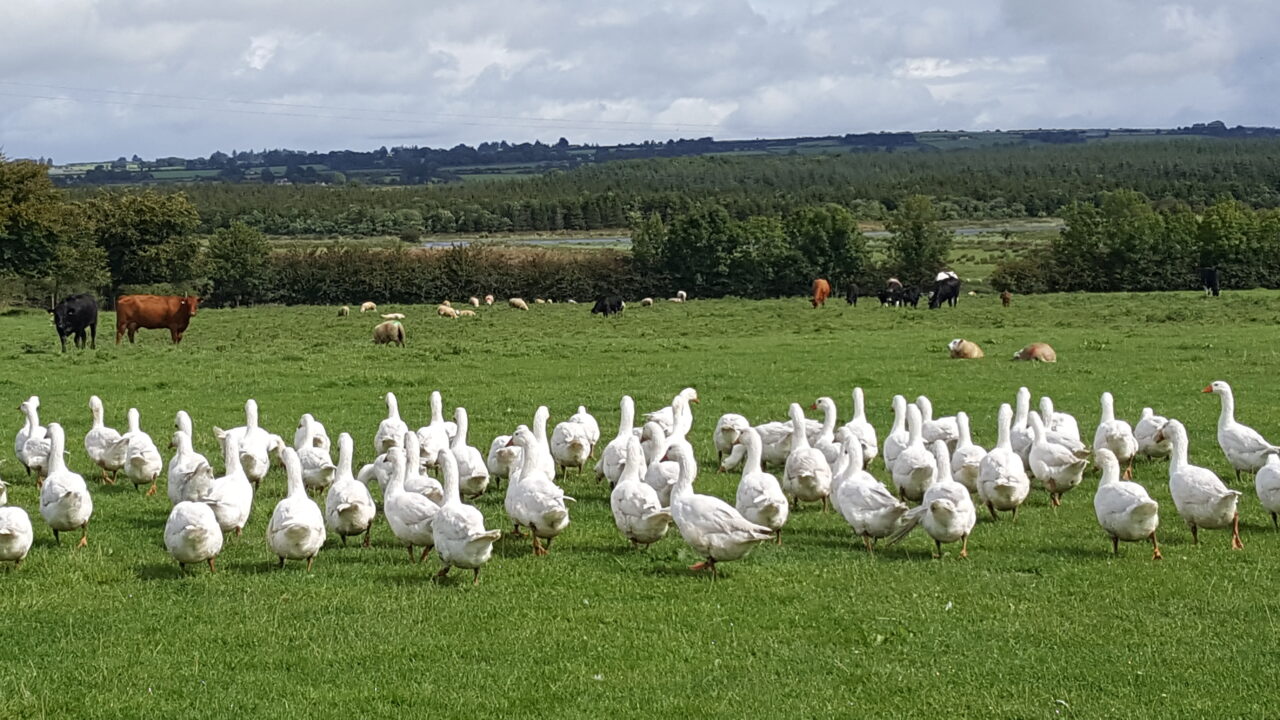Social farming and fostering enthusiasts Marie and Jimmy Barlow from Cloonfaughna, Glinsk, Co. Roscommon, like to joke that when they wed, it wasn’t so much a marriage as a merger.
“We grew up as next door neighbours,” said Marie. “My parents divided our farm between my siblings and I, and Jimmy was left his family’s farm.”
That partnership approach continued when they built a house on the shared land with Marie, an architect, designing it and Jimmy building it. Some of their eight children also helped in its construction.
Their 120ac organic farm is on the Galway-Roscommon border. The farm has a small herd of rare breed native Moiled cows as well as: sheep; suckler cows; and poultry including geese, turkeys and chickens. Marie specialises in the care of the poultry while Jimmy looks after the cattle and sheep.
Three of their children – Brigid, James and Patrick – help out in the running of the farm while many of the others are scattered around the world.
The Barlows have also opened their home to foster children over the past decade. “We have mainly fostered teenagers from inner-city Dublin. Living on a farm has a great therapeutic effect on them, being at one with the soil and nature,” said Marie who is an ambassador for Fostering First Ireland.
“It is a huge move for them from the inner city to a rural setting but we have been very fortunate that they settled.
You could see the improvements in them over the years and the move can help them out an awful lot. They really enjoy farm life.
Marie encourages other farm families to think of fostering, and appealed at a stand to the attendance at the National Ploughing Championships to consider it. “We had a very good response,” she said.
An extension of the couple’s work in fostering is their involvement in social farming through South West Mayo Development Company. They are currently running their second 10-week programme which has seen the return of the original three participants from the Brothers of Charity centre in Castlerea.
For one day every week of the programme, they help look after the livestock, feeding and counting the animals. They also work with the geese, turkeys and hens and collect eggs. Fruit picking, painting, woodwork and restoration of old farm items are on the agenda too.
We have great fun with them, and our neighbours and local community also get involved. They have integrated very well locally and are enjoying the experience.
“The two of us are present throughout the day, as we have found they need a lot of attention, but they benefit hugely,” she said. “Social farming seems to have huge appeal for organic farmers, possibly because they are doing things at a slower pace.”
Health and safety are major concerns in social farming. “We have done the health and safety checks and the lads themselves are very aware of the dangers. We have a poultry abattoir, and that is off bounds to them. A plan is always drawn up ahead of the day, with a review of things at the end of the day.
“The lads are very involved in what is going on, and are really interested in things like the selling of animals. They are meeting new people, and are aware of the changing of the seasons. We have turned a room in our house into a workshop and they can access the kitchen from there. It’s all centred around the kitchen table.”
The family sheepdog, Lucky, is an important part of the action. “Lucky is a working dog with a great temperament and is part of the family.”
“It’s like a train station here but all that amount of activity is part of the fun. There’s never a dull moment.”
